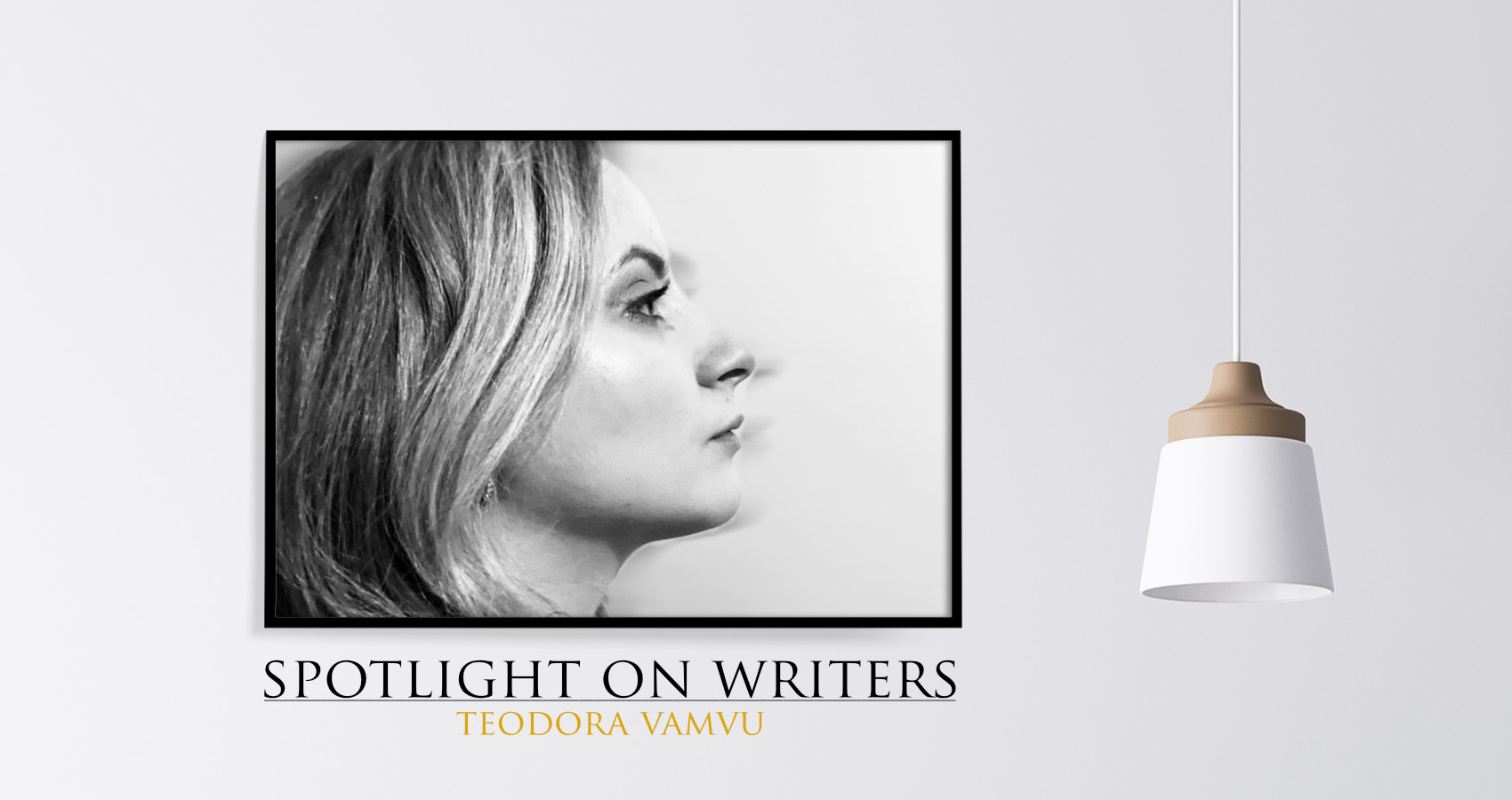Spotlight On Writers
Teodora Vamvu
@teodora_vamvu
- Where, do you hail from?
- What is the greatest thing about the place you call home?
Geographically wise, I love the fact that Romania has it all: it has mountains, valleys, meadows, seaside, Top Gear’s beloved Transfăgărășan Road, arguably one of the best roads to play Fast and Furious on, The Danube Delta, which is actually A UNESCO World Heritage Site since 1991, big and small cities, and the charm of small agricultural villages.
But, most of all, I love the freedom and option that it all entails, the fact that you can never get bored here, there’s always something to do, somewhere to go, a beautiful nature tableau to see, and I also love the people. I like to joke that if you ask for directions in English on the side of the road in Romania, chances are you won’t get an answer in English, but an animated one in Romanian. And if you try to make it clear that you don’t understand Romanian, we will only talk louder and gesticulate wider, as if the problem is your hearing and not the language barrier. We’re helpful that way 🙂 Jokes aside, we really are accommodating, polite, and excited to interact with tourists and out-of-towners. We might do better in extending this kindness to our own people, though.
- What turns you on creatively?
Well, since English is not my native language, I would say that, in my writing, what really makes a difference is the fact that I’ve been reading exclusively in English since I was 17. For reference, I’m currently 33. And since language is my forte, I’ll let you do the math. But, really, I consume a perverse amount of fiction, my Kindle is my best friend, and I don’t go anywhere without it. Since the start of 2023, I think I devoured more than 60 books and I don’t plan on stopping anytime soon.
In general, I find my inspiration in the people around me, in stories I’ve been told since I was a child, in my own memories, in my workplace, in movies with twisted plots exploiting deep psychological themes, TV shows, and the like. I’m more practical that way, more action and word-oriented, although I mostly engage my brain’s right hemisphere, so that might be a paradoxical response. I don’t go out on long walks to explore and admire nature to get my creative juices flowing, as I picture a lot of bohemian writers do. Give me a strong-plotted horror limited series over a walk in the park anytime and I’ll follow up with my own dark short story soon enough.
- What is your favorite word, and can you use it in a poetic sentence?
One of my favorite words has the same spelling and the same meaning both in Romanian and English: “pneumatic.” I love it phonetically, the way it rolls off the tongue, the sound it makes as if I’m coming down with a cold. It always cracks me up.
In English, my favorite word might just be “sonder.” I came across it as a neologism coined by John Koenig in 2012, in his project The Dictionary of Obscure Sorrows (what a beautiful title!), which aims at giving definitions to emotions that lack a one-word correspondent. And so Koenig gave birth to a beautifully visual and phonetic representation of “the profound feeling of realizing that everyone, including strangers passing in the street, has a life as complex as one’s own, which they are constantly living despite one’s personal lack of awareness of it:” SONDER. Isn’t it beautiful?
In my darkest moments of anxiety, in the midst of a tormenting depression, during the days when only sleep seemed like a reprieve from the ache and suffering of my mind, I used to scroll on Instagram and be filled with the certainty that all those people are living a better, more fulfilled life than I was, and they were doing it with grace, glamour and happy smiles. Which is completely false, I know that now. So, enter “sonder” – any one of those people really has a life as complex and maybe as problematic, or even more so, than everybody else’s. Nobody’s life is perfect, and nobody has exclusivity on suffering. Makes you feel less alone and more attuned to the realities of the world.
I think I’ll use pneumatic in a poetic sentence, makes for a funnier reading experience.
As with most pneumatic devices, you’ll have to cock the bolt and load the pellet. And as with most experienced hunters, you’ll have to close your non-guiding eye and then take aim.
- What is your pet peeve?
Grammatical errors. Not in English, as I cannot self-proclaim an expert, but in Romanian. One of the most interesting compliments I ever received was from a magazine editor when I was doing a college mandatory 3-week internship. As she was reading the article I had written, she asked me what profile I studied in high school. I answered mathematics-informatics, English-intensive, and asked her why. She told me that I wrote extremely well in Romanian. Taken aback, I said “Thank you, but that’s hardly a compliment, it’s only normal,” to which she replied, “You’d be surprised.” And, since then, I have been surprised and didn’t like it, so I tax it. If you’re Romanian and have had access to education, there’s really no excuse for an error-ridden use of the language, be it written or spoken.
- What defines Teodora Vamvu?
Since all my answers thus far have been extremely long, I will end on a short, poignant, and hopefully funny note: reads, writes, sleeps, repeats. 🙂
- Interview with The Artist - February 25, 2024
- Spotlight On Writers – Teodora Vamvu - December 30, 2023
- The Story of Us - October 11, 2023



